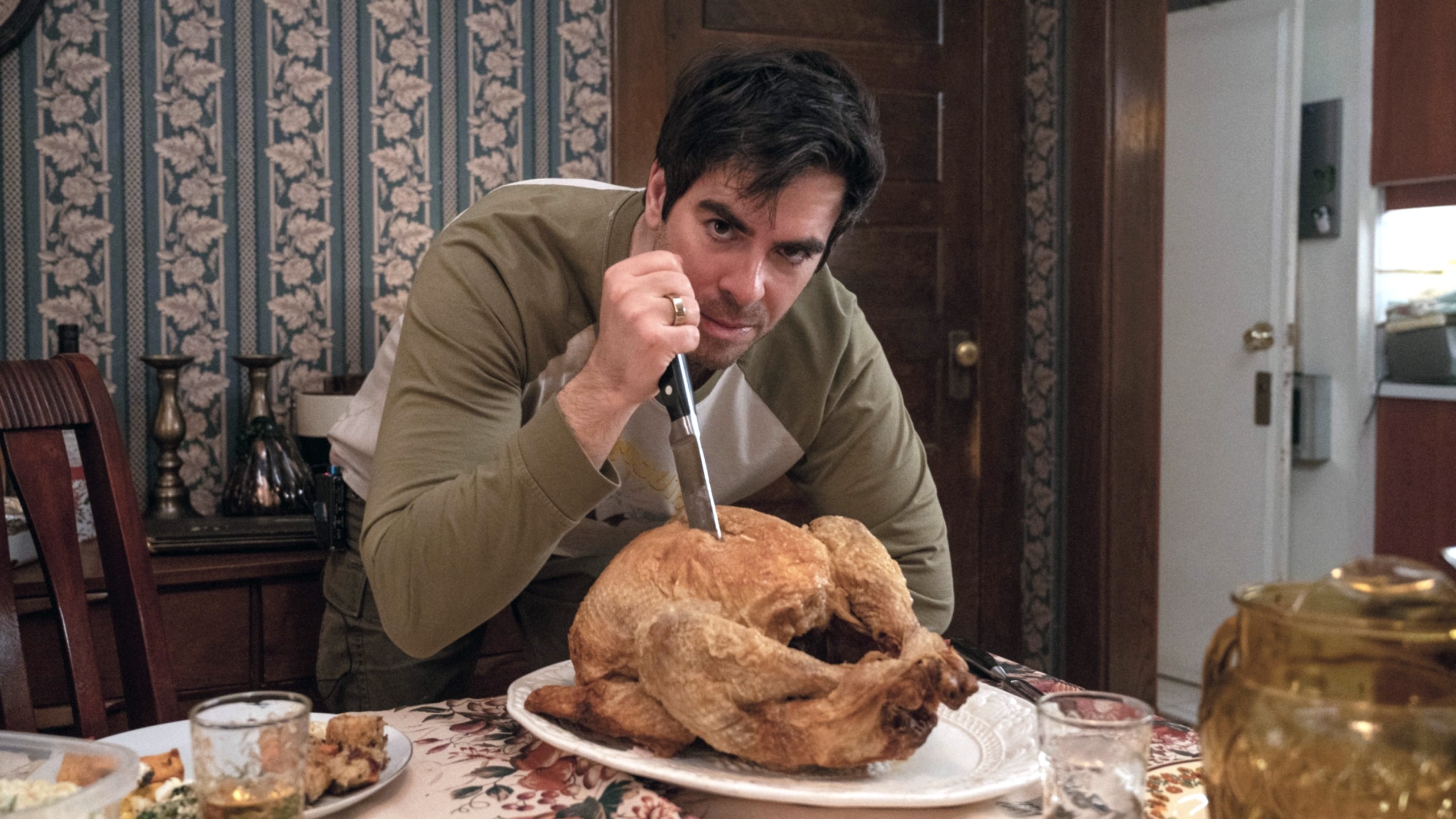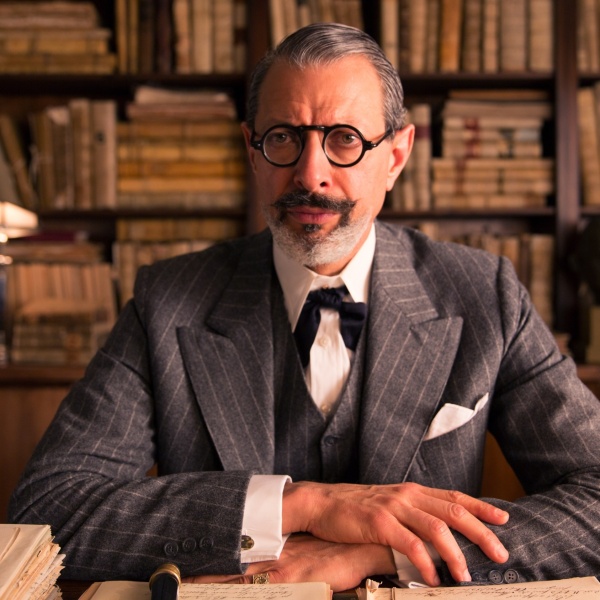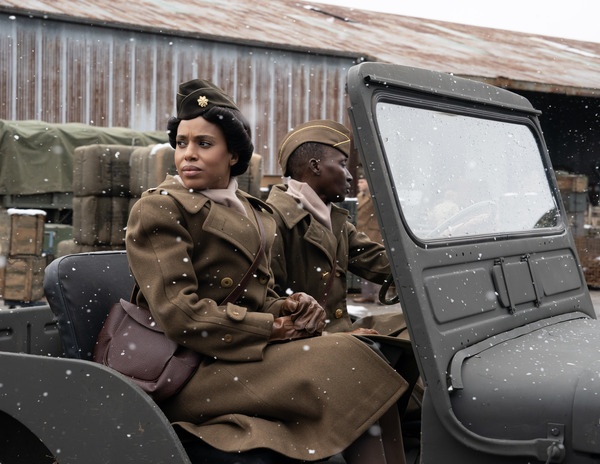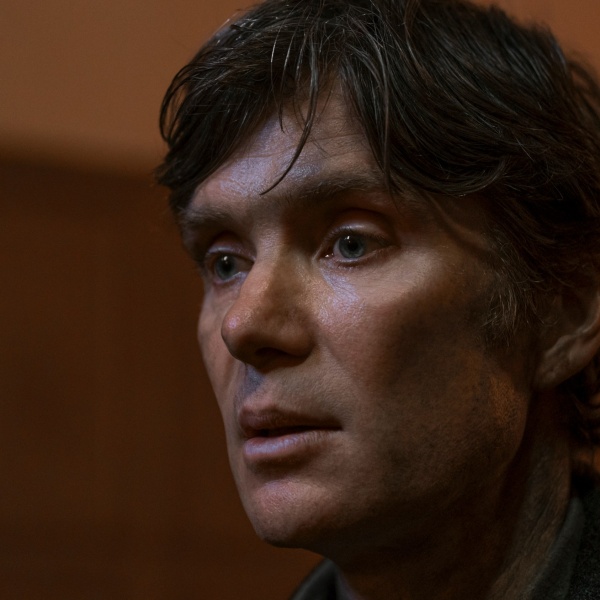Turkey toys with detachable heads. Coloring books about a killer pilgrim. A gruesome holiday board game that encourages you to die. Framed by a cornucopia of these twisted “Thanksgiving” keepsakes, director Eli Roth arrives on Zoom as happy as a clam.
“It’s all so perverse,” the Massachusetts native told IndieWire, festively shuffling through the collectibles on his desk in LA. “It’s this meta-absurdity of merchandising a movie that is also a comment on merchandising — but we’re totally aware of it. Everyone is in on the joke.”
Last November, Roth made his highly anticipated return to the horror genre and delivered an instant holiday classic. A vicious satire about American consumerism, “Thanksgiving” opens with a Black Friday sale that turns into a deadly stampede. If you haven’t seen it yet, the mass casualty event is bloody and brutal but not without its charms. There’s a football fan who gives his life for a waffle iron and the beloved Gina Gershon (from “Bound”) gets scalped by a shopping cart. Seriously, it’s a riot.
“We had to come out with an opening that was so strong and so shocking that it demanded people pay attention,” said Roth. “It needed to say, ‘This is a real slasher. We’re not making a joke. We’re not approaching it like a fake movie. It’ll be fun, but we’re not fucking around.’”
The film wouldn’t be the same without its anti-capitalist core, but Black Friday isn’t even mentioned in the original idea from 2007. Roth and his “Thanksgiving” screenwriter Jeff Rendell grew up not far from Plymouth — where their eventual feature film is set. The childhood friends first produced the barebones for a so-called “killer pilgrim slasher” as a fake trailer. It was shown during Quentin Tarantino and Robert Rodriguez’s double-feature “Grindhouse” that spring and immediately found a cult following.
“For years, people were shaming me with it online,” Roth said, describing a kind of small social media tradition. Each November, fans would repost the clip, tag Roth, and demand updates on the full-length film. “Now, I’m just happy it’s out,” he said. “You can actually eat dinner and stuff your face and crawl over to your couch and pop it on. That’s what I wanted.”
Oozing with backwards Americana and straightforward sex appeal, the bite-sized genre experiment gave Roth and Rendell their earliest proof that “Thanksgiving” could be a franchise. They’ve got a sequel coming out next year (more on that later), but even as a stand-alone, the original film is becoming a seasonal rewatch on streaming and in many repertory theaters. The recipe for that success is deceptively tricky — and it only starts with the movie.

As a go-for-broke horror comedy, “Thanksgiving” layers byzantine tortures with familiar traditions to capture our culture’s conflicted feelings about the holiday. The tone is slow-cooked by Roth’s matured storytelling chops and the result is something like a taboo turducken. That two-in-one effect is also what Roth is going for with all the merchandising.
“What’s fun with this is that all the stuff is being geared as very sick versions of things that used to be for children: action figures, stickers, coloring books, board games, but now they’re made for the adult horror fans that grew up with the seventies and eighties and nineties version of that stuff,” said Roth. “With ‘Thanksgiving,’ I just wanted people to remember the joy behind all those holiday slasher movies.”
Roth doesn’t usually see his films turned into mementos. After making his directorial debut with “Cabin Fever” (2002), the gonzo director became a polarizing figure in extreme horror. Whether it’s a dangling eyeball or a sliced Achilles in the excruciating “Hostel” (2005) — or an act of girl-on-girl cannibalism in the notorious “Green Inferno” (2013) — Roth has a knack for making images that feel more like a dare than a snow globe.
“Somebody made these ‘Hostel’ coasters,” Roth said, picking them out from between all the “Thanksgiving” stuffing. “They’re bootleg, but that’s like the closest we’ve gotten. We did some t-shirts and a limited run of an action figure too, but I never even had one.”
More than needing a content warning, studios haven’t always seen the value in marketing horror this way. That’s why Roth invited NECA (that’s the National Entertainment Collectibles Association) and the genre-themed apparel company Fright Rags to foster ideas for “Thanksgiving” while he was still on set.
“When we were shooting the dinner scene, I told Spy Glass and Sony that I wanted to bring them in,” said Roth. “I said, ‘Let’s get in at the start.’ I wanted to show them the real thing.”

Attending genre conventions across the country (“I could go to a different one every weekend if I wanted,” Roth said), the director is participating in a two-way conversation. He described marveling at cosplay for his movie’s masked killer, John Carver, and enjoying watching the mythic reputation of his not-so-pious Ghostface type grow.
Roth considers the horror community on par with the comic book world — and thinks about their overlap a lot. The director may not be making a “hero” out of Carver, but it’s his job to keep people excited about the villain. Despite spending his formative years near two different pilgrim recreation villages, Roth had never heard of the real Massachusetts governor or his Mayflower survival story before this.
“We got lucky with the name. It was like God giving us a little softball,” Roth said. “It’s just funny that people now will learn about John Carver because of this movie.”
By embracing his role in the broader “Thanksgiving” ecosystem, Roth not only deepens his storytelling but also helps a 16-year-old character (known in the trailer as just “The Pilgrim”) feel fresh enough to come back. Building sustained authenticity in pop culture has long been part of the superhero machine.
“It’s the same audience, the same people,” Roth said. “They love it, but they also can smell a rat. They smell an imposter, and they know who’s true to the game.”

Not every filmmaker can make catering to their fandom look like the opposite of selling out — but there’s a special alchemy that can turn physical reminders of a movie into extensions of its legend. Roth knows that science better than most. He reverse-engineered the concept as a young filmmaker for “Hostel” and has been reaping the rewards ever since.
“I always thought, ‘If this movie works, every time people travel around the world, they’re going to see that sign that says ‘HOSTEL’ and remember it,” Roth said. “It’s a cheat — like naming your movie ‘Stop Sign.’”
He continued, “With ‘Thanksgiving,’ right after ‘Halloween’, I immediately noticed on November 1st that people switched over right away to John Carver. They’re putting on costumes and doing holiday photos of them with pitchforks. It’s great.”
From the classic “My Bloody Valentine” (1981) to the revolutionary “Terrifier 3” (2024), holiday horror has endured for a long time. Roth describes himself as a kind of “sommelier” for scary movies — and he’s bottling their history with the growing “Thanksgiving” label. That silly-sinister blend works well for the people who love John Carver and, at least for now, it’s got Roth back in the horror business year-round.
“I said, ‘If I’m going to make a return to horror, then it’s got to be with something that makes me hungry to do it again,’” Roth said. “Now, I pretty much just want to do horror all the time… I could actually do horror movies for every holiday. I would just do them for the year. If someone was like, ‘For the rest of your life, all you’re allowed to do is holiday horror movies’? I’d go, ‘Great!’ and fill the calendar.”

The director described feeling “burned out” defending gore and violence to critics before he stepped away for different projects. With the action flick “Death Wish” (2018), the kid-friendly “The House with a Clock in Its Walls” (2018), and even his shark documentary “Fin” (2021), Roth picked up new skills and perspectives as a filmmaker. Roth said that helped him manage “Thanksgiving” better than he might have as a younger artist.
Speaking with IndieWire, he mentioned the head-scratcher that is “Borderlands” just once and said, “That was a whole other story. Making that in COVID was like… I could write a book on that.” Even vague, the experience comes through with the thoroughly polished “Thanksgiving.”
“The great thing about the horror genre is that the killer is the star, and the directors are the stars,” Roth said. “It’s one of the last true creator mediums. In so many other genres, the directors have not become replaceable but interchangeable.” While superhero franchises have become more obviously formulaic, Roth’s only sequel so far, “Hostel II” (2007), continues to gain traction as his best work to date.

Next year, “Thanksgiving 2” promises another helping from the renewed Roth and Rendell. The filmmaker said the sequel is in “soft prep” now with plans to start shooting at the end of March. It won’t be a prequel, several actors are returning, and the script is already written. Now they’re hammering out the budget which Roth wants to keep low like last time.
“We’re upping the ante but we are not going to do it with more money,” he said. “That keeps it tight and lean and mean and forces us to make decisions. There’s a lot of setting up that we did in the first one that we don’t have to deal with now. It can just be all pay-off.”
Roth aims to deliver an epic, “no bullshit,” cat-and-mouse chase akin to Anthony Waller’s “Mute Witness” (1995) and the Kathleen/Carver/pitchfork sequence from the first “Thanksgiving.” He continued, “I’ve come up with stuff that is going to be a challenge. And I want it to be a challenge to pull off. Because if I’ve come up with the stuff that I think will make the best kills, then I’m going to do it like I’m never going to make another movie again.”
Fans will decide if “Thanksgiving 2” should be a final course or the first of many in 2025. For now, Roth is geeking out over the score coming to vinyl and devoting himself fully to the thirsty blade of John Carver.
“It really was a reminder of the deep satisfaction I get just knowing there is a Thanksgiving movie out there and that people enjoy it and that people are now watching the old slasher films because of it,” Roth said. “I feel like we have a new tradition. And that’s all you want to do is leave your mark — good or bad — on pop culture. Eventually, no one is going to remember. The only thing that will be left is the movies.”
The movies and, if the killer is killer enough, maybe the merch.






